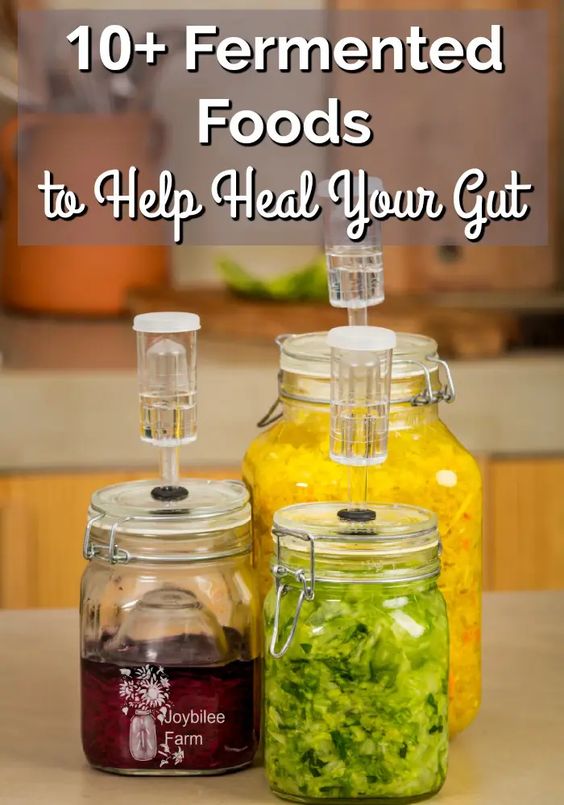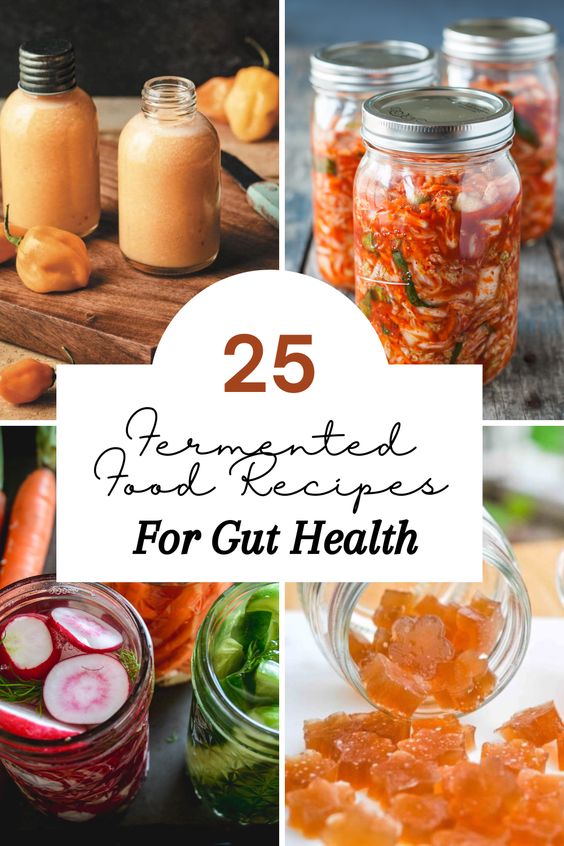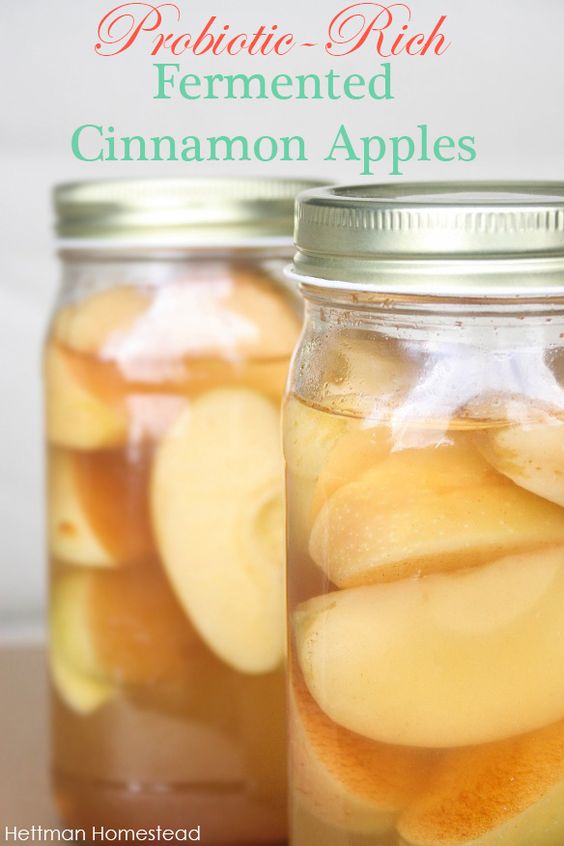Fermented Foods: A Key to Gut Health on a Vegan Diet or Just a fad?
In recent years, you may have noticed that fermented foods have had a surge in popularity. These foods are touted as gut health miracles, promising relief from digestive issues like bloating and claiming to heal your gut. For many women who are navigating the complexities of weight loss and digestive issues, the appeal of a natural solution such as fermented foods for gut health is undeniable.
This may be especially interesting for those who want to go plant based but find a plant based diet triggers their bloating. Could fermented foods be a key for bloating and supporting a plant-based diet for IBS?
However, with so many dietary trends and fads coming and going, it’s important to ask: Are fermented foods truly a key to better digestion and overall well-being, or are they just another fleeting trend? In this post, I’ll explore the science behind fermented foods, their role in supporting a healthy gut, and whether they live up to the hype. And what about those on a vegan diet? What are the plant based sources of fermented foods and how can we incorporate them into our diets (if we even should)? Whether you’re already a big fan of fermented foods or you’re considering trying them out, this guide will help you make informed choices that support your health and wellness goals.



The Importance of Gut Health on a Vegan Diet
Many women experience digestion-related issues such as bloating, gas, and irregular bowel movements. These symptoms can be frustrating and may hinder weight loss efforts by limiting food choices and steering you away from an optimal weight loss diet.
Meaning that maintaining optimal gut health on a vegan diet is crucial, especially for women who are navigating the challenges of weight loss and digestion. And although the increase in fibre that naturally occurs when we eat more plant-based foods, this is sometimes not sufficient in healing the gut. For some people the added fibre could even be a trigger for bloating cramps and constipation or diorrhea.This can be incredibly frustrating when you feel like you’re eating a healthier, more ethical diet but struggling even more with your IBS symptoms!
The gut, often referred to as the body’s “second brain,” plays a vital role in everything from nutrient absorption to immune function. Even more important, the gut directly impacts how effectively your body processes the wide variety of nutrients found in vegan foods.
So what do we mean when we talk about “healing the gut”?
A healthy gut contributes to smoother digestion, reduced bloating, improved energy levels and even has benefits for weight loss (1) all of which are essential for maintaining a balanced and sustainable lifestyle while losing weight on a vegan diet.
But what is a healthy gut? A healthy gut is one that has a healthy and diverse balance of microbes. There are millions of microbes in your gut. Some reside in your stomach and small intestine, but most of them are in your large intestine (colon). Some of these can be beneficial for our health and we refer to these as probiotic and some may be unhelpful for health and these may be called pathogenic. These microbes are able to digest our food and turn it into other compounds which go on to impact our health. The good ones (probiotics) mostly they survive of the fibre we eat and turn them into something called Short chain fatty acids (SCFAS) these go on to do lots of good things like balancing gut microbiome composition, increasing antioxidant capacity, enhancing immune response (2) which is why it’s important to consume a wide variety of plant based foods.
A healthy gut contains a balanced composition of microbes that support our health. This is usually what we mean by gut health or “healing the gut”*. One of the key benefits of supporting gut health is its impact on weight management. A balanced gut microbiome can help regulate metabolism and control appetite (3) and digestive symptoms.
Understanding the importance of gut health and how it affects your overall well-being is the first step toward making informed dietary choices. Whether you’re looking to reduce bloating, manage IBS symptoms, or enhance your weight loss journey, focusing on gut health is key to achieving your goals on a vegan diet.
*This refers to on social media when creators talk about “healing” the gut this is usually what they are referring to. As a nutritional therapist I do not diagnose or treat diseases. With my 1:1 clients we work together to promote health and support a healthy gut environment but not to “heal” any diseases.




Fermented foods:
Fermented foods are foods that have been made using some form of controlled microbial growth. Because of this many fermented foods contain probiotics (4).
Some examples include:
- Sauerkraut
- Kimchi
- Kombucha
- Yogurt (plant based and diary options)
- Kefir (plant based and diary options)
- Tempeh
- Miso paste
Why do we care about them – what’s the theory?
Because these foods have been produced with microbes there is a possibility that consuming them could introduce more diversity into your gut (5).
But we don’t necessarily have the evidence that the probiotics in the fermented foods actually make it to your gut alive. However, because the foods are fermented, they may have other benefits. One being that the fermentation process might decrease the fodmaps in that food making it more easily digested for those that struggle with digesting fodmaps; for example in sourdough (6). Another possibility is that during fermentation the microbes produce those beneficial SCFAS that I mentioned earlier. This could be helpful for those who don’t have an optimal microbiome because these SCFAs are able to balance the microbiome composition (7). SCFAs also increase the antioxidant capacity of the food making it more anti-inflammatory and even better for overall health.
This is all the theory though, what does the actual science say when we test it out in real humans?
A lot of the research out there on fermented foods is done on dairy products specifically. Which is an issue for a couple of reasons. Firstly, the results could be impacted by those who have an intolerance to dairy (and may not know it) as a dairy intolerance could be the cause of many GI symptoms (8). Secondly when it comes to long term health, dairy may have negative impacts such as high saturated fat content. Thirdly, for any of us plant based girlies, it’s hard to tease out the impact of plant based fermented foods on our health!
One study looking into this found that (specifically for only those who CAN digest lactose), that fermented dairy intake was associated with improved weight weight management and improved gastrointestinal health (9). But this was only for those who could digest it, ruling out a large chunk of the population.
I was able to find a few studies on plant based fermented foods that were interesting so here you go:
Kimchi
One study found that consumption of kimchi improved blood sugar control and total cholesterol in young healthy adults (10). When the probiotic (from the kimchi) was isolated and given to adults it also showed a weight loss benefit (11).
Soy
Intake of fermented soy milk significantly improved the microbial gut composition by increasing the amount of probiotics (13). Fermented soya milk may be hard to come by but there are other fermented soy products that are easier to obtain such as tempeh (like a fermented tofu), or miso paste.
When soya is fermented other beneficial products are formed such as soy isoflavones which have been shown to improve outcomes in animal models of Alzheimer’s Disease. Of course this means the research is currently limited to animal models but that fermented soya could have beneficial impacts on alzheimer’s risk. (14).
Overall:
Alternatively, one study comparing a high fermented food diet to a low one found that the high-fermented-food diet steadily increased microbiota diversity (meaning a better composition) and decreased inflammatory markers (17).
Kombucha
What about kombucha? A meta-analysis (an analysis of all the studies out there) (12) showed that there are no current known benefits of kombucha. But they also stated that the current level of evidence is very poor. Lots of the studies were animal studies which can’t be applied to humans. The meta-analysis actually only found one human study! So we need more human trials to see if there could be any benefits to kombucha consumption.
Sauerkraut:
Sauerkraut is a probiotic food (15) And has been shown in a small study to alleviate IBS symptoms even when pasteurised (16). This result might be due to the natural composition of sauerkraut which is rich in glucosinolates and fibre. When fermented, the breakdown of glucosinolates increases the bioavailability of the fermented food, meaning it has more of a positive impact after fermentation.
The benefits remain even when pasteurised which is great news for those who are at a higher infection risk want to opt for pasteurised options (eg during pregnancy but consult a GP first before making dietary changes).
So what does all of this mean?
It means that small amounts of fermented foods could have some health benefits for some people, they may not be appropriate for those with histamine intolerance or those who are pregnant (always consult with your GP or a registered NT like myself before making changes to your diet). Adding fermented foods into your diet is cheap, simple and very tasty and could be a useful tool on your gut health or weight loss journey. However there isn’t a magic bullet and so fermented foods need to be incorporated in combination with other dietary and lifestyle interventions in order to see benefits. Our diets and lifestyle work together to create our health.
How to use them:
Sauerkraut & kimchi
These are very similar except kimchi is spicy. I like to add sauerkraut to the top of avocado toast or inside a cheese toasty, stir fry kimchi into some rice, and use both to spice up a salad or buddha bowl! I like chopping them up smaller so I can easily get a little taste in every bite. Sauerkraut or kimchi is also great on top of a cucumber slice if you’re craving a salty snack (like crisps) but have a weight loss goal!
Important note: These foods can be high in salt and so shouldn’t be eaten in excess. Just a small addition to your diet – no need to go overboard & of course consult a GP or with an NT like myself before changing your diet especially if you have any pre-existing conditions, are pregnant or taking any medications.
Apple cider vinegar
Apple cider vinegar is great in a salad dressing, massaged into some kale, or blitzed into some hummus. Never drink Apple cider vinegar straight as it can cause burns.
Kombucha
Kombucha is best had sparingly, as an alternative for alcohol as it is often high in sugar. Opt for one without artificial sweeteners and enjoy it as an alternative to a cocktail (although they do have a small alcohol content so might not be appropriate for some people).
Sourdough
Sourdough is a fab swap, opt for a wholegrain one and use for your avocado-sauerkraut toasts! Or roast into salad croutons, or blitz into breadcrumbs for a mac and cheese.
Tempeh
Tempeh is like a thicker tofu – you can see the beans in it. It has a stranger nuttier taste. I like slicing it really thin, marinating in some soy sauce, smoked paprika and garlic powder & baking to make vegan bacon perfect for a vegan BLT!
Miso soup recipe;
This is an incredible alternative to the bone broth trend for us vegans and vegetarians:
- Mix 1 tsp of miso paste with 1 cup of very warm water (not boiling)
- Stir and drink as a snack or a starter before a meal
- Optional extra: add in a small handful of cubes of chopped silken tofu to add some protein and texture!
References:
- Gomes, A. C., Hoffmann, C., & Mota, J. F. (2018). The human gut microbiota: Metabolism and perspective in obesity. In Gut Microbes (Vol. 9, Issue 4, pp. 308–325). Taylor and Francis Inc. https://doi.org/10.1080/19490976.2018.1465157
- Li, S., Heng, X., Guo, L., Lessing, D. J., & Chu, W. (2022). SCFAs improve disease resistance via modulate gut microbiota, enhance immune response and increase antioxidative capacity in the host. Fish and Shellfish Immunology, 120, 560–568. https://doi.org/10.1016/j.fsi.2021.12.035
- Gomes, A. C., Hoffmann, C., & Mota, J. F. (2018). The human gut microbiota: Metabolism and perspective in obesity. In Gut Microbes (Vol. 9, Issue 4, pp. 308–325). Taylor and Francis Inc. https://doi.org/10.1080/19490976.2018.1465157)
- Orgeron, R., Corbin, A., & Scott, B. (2016). Sauerkraut: A Probiotic Superfood. In Functional Foods in Health and Disease (Vol. 6, Issue 8).
- PMID: 35406140
- PMID: 30186276
- Li, S., Heng, X., Guo, L., Lessing, D. J., & Chu, W. (2022). SCFAs improve disease resistance via modulate gut microbiota, enhance immune response and increase antioxidative capacity in the host. Fish and Shellfish Immunology, 120, 560–568. https://doi.org/10.1016/j.fsi.2021.12.035
- PMID: 26393648
- PMID: 32447398
- PMID: 23444963
- PMID: 32615727.
- PMID: 30527803
- PMID: 15754410
- PMID: 37297345
- Orgeron, R., Corbin, A., & Scott, B. (2016). Sauerkraut: A Probiotic Superfood. In Functional Foods in Health and Disease (Vol. 6, Issue 8).
- Nielsen, E.S.; Garnås, E.; Jensen, K.J.; Hansen, L.H.; Olsen, P.S.; Ritz, C.; Krych, L.; Nielsen, D.S. Lacto-fermented sauerkraut improves symptoms in IBS patients independent of product pasteurisation-a pilot study. Food Funct. 2018, 9, 5323–5335.
- PMID: 34256014
